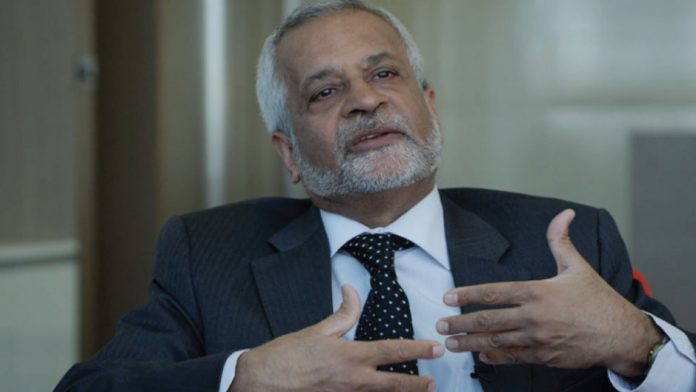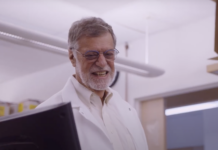Jatin Nathwani is a professor at the University of Waterloo in the Department of Civil and Environmental Engineering and the Executive Director of the Waterloo Institute for Sustainable Energy (WISE). We asked him everything from what he is reading to what advice he would give to young researchers to give you a better understanding of what goes on outside the lab for one of the best minds in Canadian research.
What inspired you to become a scientist?
The context of my world as a small boy growing up in a very small town in Africa and being totally mesmerized by the radio.
My father always tuned into the World News (BBC) at night. A voice from thousands of miles away brought us stories of other distant destinations was proof that there was a world beyond our town. The proximity to the rainforest and the darkness that fell so suddenly after sunset was frightening and yet the voice and music on the radio delivered comfort and magic. Only in high school physics, many years later, did I find electricity and magnetism and Maxwell’s equations. How could anyone not be captivated by the simple idea that magic can be formally and clearly explained by theory, experiments and real artifacts that you can touch and feel?
What do you like about being a scientist?
To know that what I know is a very small slice of a big pie – but I seem to have an unusual appetite for more pie. Science at its core is an open ended inquiry to satisfy curiosity and although we learn by observation and reason, the most satisfying aspect is to find a way to know how to know and develop some discretion about which facts matter in what context.
What do you envision in the future of your field?
The future of energy transitions and how they are implemented will remain a work in progress but careful thinking will ensure we don’t compound too many fact-based errors on too short a time scale. Divergent paths and some mis-steps can be beneficial if they lead to a resilient energy system.
How will your research make a difference in people’s lives?
I am deeply involved in a major initiative: Affordable Energy for Humanity (AE4H.org). Success in advancing universal energy access will have an enormous positive impact on the quality of lives of billions who have no access to electricity or modern energy services. My desire is to get to a point within the next 15 years or so where energy access has become a footnote of history. Perhaps a tall order, but it is worth keeping that goal in mind.
What advice would you give to young researchers?
Please, take a bold step and find some way to help improve other people’s lives even if the improvement is only minuscule.
What do you consider your greatest achievement?
As for my greatest achievement: not much. At my age, I can be considered to be in the third period of the hockey game and the score is 0-2 against me. Need to score a couple of goals in a hurry to tie up the game and then be ready to score the winning goal.
What do you read?
History and poetry of the First World War: Christopher Clark’s Sleepwalkers and Margaret McMillan’s The Road to 1914 are stellar.
[I] also just read ‘Bee Time: Lessons from the Hive’ by Mark Winston. We need to learn from the bees the rule book for deliberate dialogue to solve our differences.
What’s on your iPod/CD collection/turntable?
Gregorian Chants, Collection of Opera CDs, Bruce Springsteen, Bob Dylan, Leonard Cohen
If you could meet any historical figure, who would it be and why?
Hello Mr Napoleon? What were you thinking dragging your cavalry all the way to Russia? And a possible winter? How come logic got the short end of the stick? And what happened to prudence?
If you could do any profession other than your own what would it be?
Symphony conductor
Want to learn more about Jatin Nathwani’s research? Check out his Orange Chair Interview on the energy crisis.








































